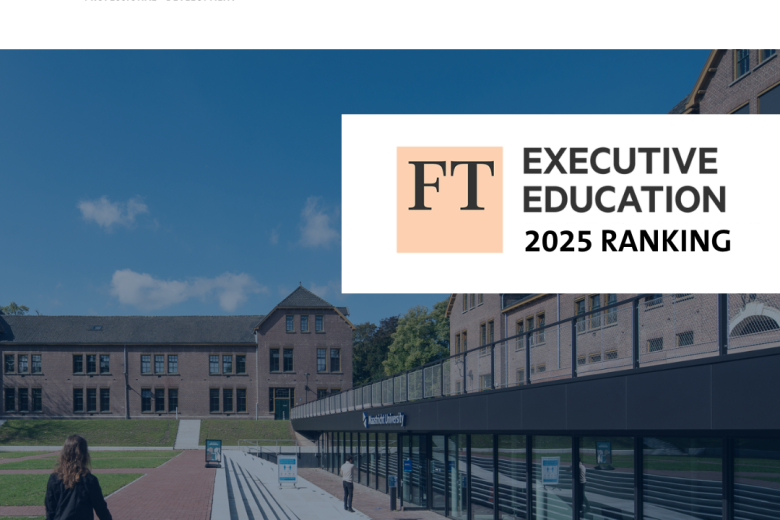Outcomes of emergency debate on increase in international students
An emergency debate was held the day before yesterday with the education minister Robbert Dijkgraaf on the influx of international students at Dutch higher education institutions. During the debate, which was requested by Peter Kwint (Member of Parliament for the Socialist Party) and Harry van der Molen (former MP for the CDA), it became clear that politicians and administrators agree on the need to halt further growth in the number of incoming international students. Some parties, despite acknowledging the importance of these students, would like to see their number reduced; they argue that constant growth is destabilising the higher education system. UM anxiously awaits the outcome of these political discussions.
Below is a brief overview of the key points made by Minister Dijkgraaf in response to the questions and motions raised during the debate. The minister’s responses offer some insight into the direction he intends to take in his forthcoming proposal for measures aimed at managing the influx of international students.
1. Memo with measures postponed
First, the minister indicated that in order to incorporate the comments and considerations ensuing from the emergency debate, he would submit his memo with proposed measures to the House of Representatives not in February but in mid-March. This delay means that the present suspension of recruitment activities for international students will be extended. The minister also left open the possibility that stricter rules for recruitment will continue to apply after mid-March.
2. International student influx at a maximum
Minister Dijkgraaf agreed that the number of international students should stop growing, though he did not suggest it ought to be reduced. The current intake represents the maximum number of international students that the Netherlands can handle. In the minister’s view, legislation needs to be passed and joint agreements with the educational institutions need to be drawn up to halt the growth. He also indicated that the influx of international students ought to be centrally managed. Because new legislation takes time to implement, the minister did not rule out the possibility of reintroducing the proposed Language and Accessibility Act as an intermediate step. This bill has already been approved by the House of Representatives and only awaits passing by the Senate.
3. Importance of Dutch as a language of instruction
During the debate, Minister Dijkgraaf endorsed the use of the Dutch language. In doing so, he came some way towards appeasing those MPs who have expressly called for broader use of Dutch in higher education.
4. Customisation to be limited
Encouragingly, the minister and various other parties acknowledged the importance of taking regional differences into account. Minister Dijkgraaf himself expressly referred to the border regions. Later, this point was again made in connection with the possibility of drawing up separate regulations to ensure the continuation of study programmes in sectors facing labour shortages. However, the minister also warned that every institution now seems to be claiming to be an exceptional case. He indicated that he was wary of permitting too much customisation and granting exceptions, and pointed out that it is not up to the institutions themselves to decide whether their position is exceptional.
5. Opportunities for graduates to remain in the Netherlands
During the debate, the term ‘stay rate’ was replaced by ‘opportunity to stay’. The minister was considering tasking educational institutions with activities designed to increase the number of international students who remain in the Netherlands upon graduation. He also said he was considering setting a desirable percentage of international students, although he hinted that this percentage may vary per institution and situation.
What happens next?
On Tuesday the House of Representatives will vote on the lengthy list of motions submitted yesterday. Even if the outcome of the votes aligns with Minister Dijkgraaf’s advice, yesterday’s debate shows that the situation remains tense. UM will continue advocating for customised agreements, emphasising the situation particular to border regions. There is no guarantee of success, however, despite several calls yesterday for the region not to fall victim to problems affecting the Randstad.
What does this mean for our upcoming open days? We can expect many questions not only about this but also on many other subjects related to the influx of international students. Maastricht University is taking a clear line: we will comply with the agreements set out by Minister Dijkgraaf on limiting active recruitment. For the time being, the open days will continue. We hope to be able to say more about the consequences for enrolments and the like when the minister presents his memo in mid-March. In the meantime, we will continue to be the hospitable university that we always were.
Also read
-
Language policy in European higher education
The increased Englishization of higher education is under discussion in several European countries. What does a balanced language policy look like that does justice to both the increasingly international character of higher education and a country's language-related cultural identity? At an...

-
Most prestigious European grant to two UM scientists
Two Maastricht University professors are to receive the most prestigious European research grant for individual researchers: an ERC Advanced Grant, worth over €2.5 million. They are Lorenzo Moroni (MERLN) and Alexander Sack (FPN).

-
Global recognition for SBE’s Executive Education by Financial Times
We are proud to announce that Maastricht University School of Business and Economics (SBE) has secured an impressive global ranking of 84th in the Financial Times Open-Enrolment Executive Education Ranking 2025.
